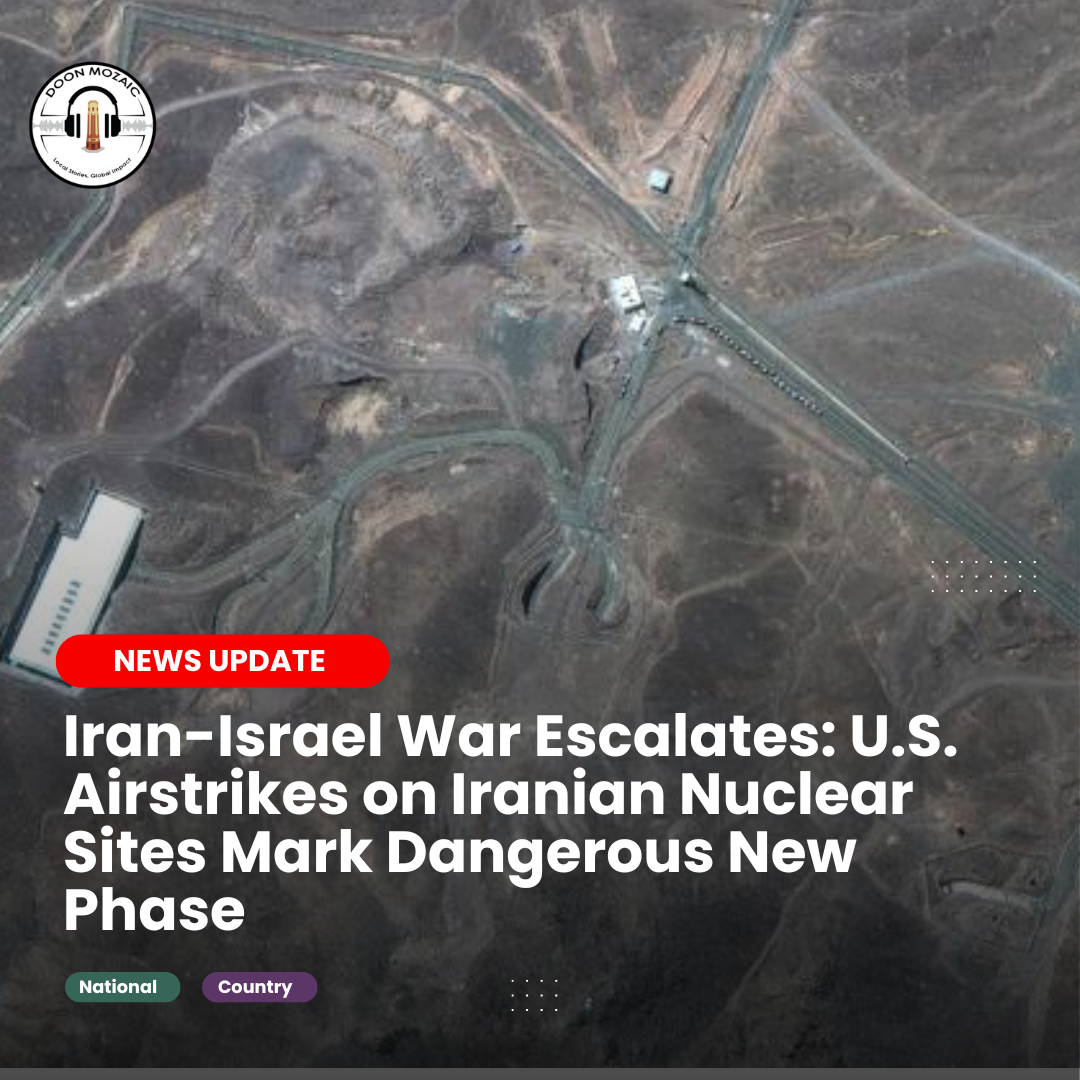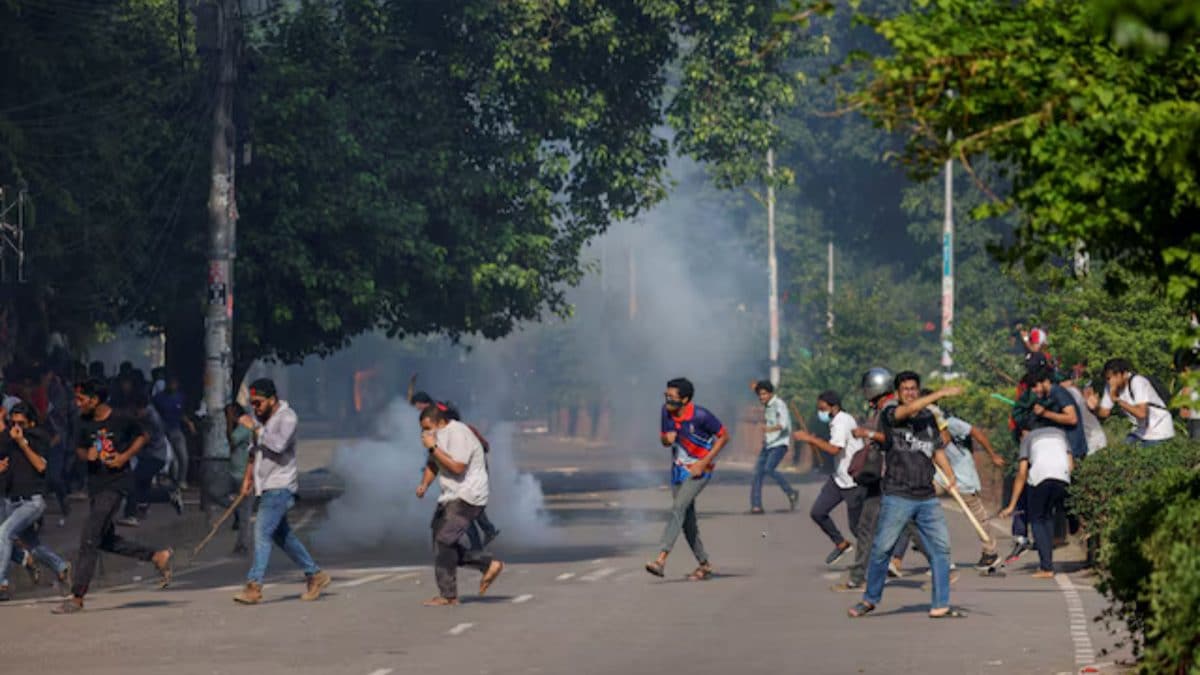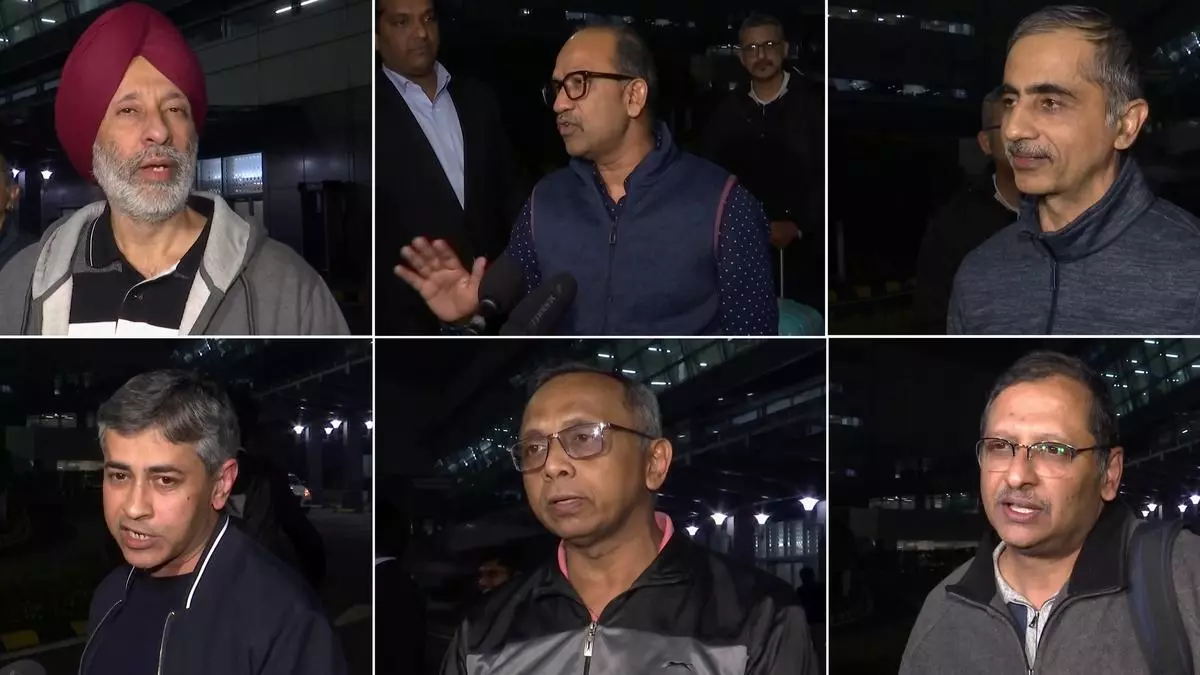By Doon Mozaic News Desk | June 23, 2025
The ongoing Iran-Israel conflict has dramatically escalated following the United States’ direct military intervention targeting Iran’s nuclear infrastructure. In a statement released via Truth Social, U.S. President Donald Trump confirmed that the U.S. Air Force successfully struck three critical Iranian nuclear sites — Fordow, Natanz, and Isfahan — using a combination of B-2 stealth bombers and Tomahawk cruise missiles. According to President Trump, a “full payload of bombs” was dropped on the Fordow facility, with all aircraft safely returning from Iranian airspace.
Trump called the strikes a “spectacular military success,” asserting that no other military in the world could have carried out such a mission. The president added that the U.S. now seeks peace but warned that additional targets would be hit if Iran does not move toward de-escalation. “There will either be peace or tragedy for Iran,” Trump declared in an interview with Fox News’ Sean Hannity.
The airstrikes mark a significant escalation in the conflict that has entered its second week, already causing extensive civilian casualties. Iran’s Deputy Health Minister Ali Jafarian confirmed that 430 civilians have been killed and over 3,000 injured since the hostilities began, largely due to Israeli strikes. In response to the U.S. assault, Iran’s government has yet to release a detailed counterstatement, but the international community has reacted swiftly and anxiously.
International Fallout and Regional Reactions
The United Nations Secretary-General Antonio Guterres issued a strong condemnation, calling the U.S. action a “dangerous escalation in a region already on edge.” Warning of catastrophic consequences, Guterres urged all member states to uphold their international obligations and avoid further military escalation. “There is no military solution. The only path forward is diplomacy,” he emphasized.
Despite the strikes, reports from Saudi Arabia and Kuwait confirmed that no radioactive effects were detected in the air or water following the bombing of the nuclear sites. Both nations’ regulatory authorities have stated that radiation levels remain stable, indicating that the facilities were either inactive or the attacks were precisely calibrated to avoid a nuclear fallout.
In contrast, Israeli Prime Minister Benjamin Netanyahu praised Trump’s actions, stating: “President Trump, I thank you, the people of Israel thank you. Your leadership has created a pivot of history that can help lead the Middle East and beyond to a future of prosperity and peace.”
The U.K. also offered qualified support, with Prime Minister Keir Starmer labeling Iran’s nuclear program “a grave threat to international security.” Starmer urged Tehran to return to negotiations to prevent further deterioration of the crisis.
U.S. Diplomatic Measures and Military Movements
In anticipation of possible retaliation, the United States has begun scaling back diplomatic personnel in the region. A U.S. official told AFP that non-essential staff were evacuated from the American embassy in Baghdad over the weekend, though both the embassy and consulate remain operational.
The U.S. military, meanwhile, remains on high alert. According to sources cited by Reuters and Axios, Israel was informed in advance of the airstrikes, demonstrating close coordination between the two allies. Military analysts suggest that the use of B-2 bombers and Tomahawk missiles highlights the seriousness with which Washington views the threat posed by Iran’s nuclear ambitions.
A Region on the Brink
This latest development in the Iran-Israel war could mark a turning point with long-term global implications. What began as cross-border tension has now grown into a multinational conflict involving one of the world’s most powerful militaries. The international community watches with bated breath as the balance between war and diplomacy teeters on a knife’s edge.
While President Trump frames the airstrikes as a prelude to peace, the question remains whether Tehran will interpret the attacks as a deterrent or a provocation. As military movements intensify and global leaders scramble to respond, the world is left to hope that diplomacy, not devastation, will guide the next chapter of this escalating crisis.
Discover more from The Doon Mozaic
Subscribe to get the latest posts sent to your email.



